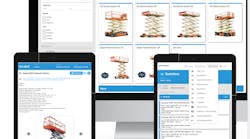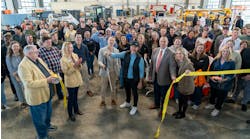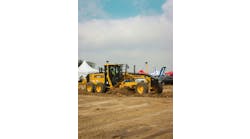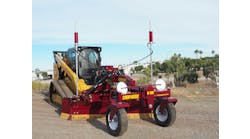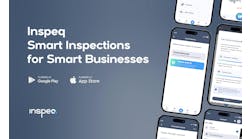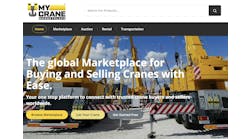Interview with Patrice Boivin: Proactive Software
What have been the most important achievements of your software in the past year?
This year, the focus has been on two very important market segments: the Scaffolding and Distributor features. First, we added a full set of features to manage the standard fixed quoted price for the construction industry. It allows users to prepare a quote with a fixed price and billing by stage with extra claims. Second, we added more features to better serve the Distributors for selling, financing and servicing equipment. We now have advanced functions to manage the maintenance of customer-owned equipment with the lifetime maintenance schedules in the shop and onsite. With these additional features, Sirius is an ERP that can manage rental, distribution and services with specific features in all the market segments of the construction industry.
What have been the most important advancements in capabilities, i.e., enabling rental companies to improve their efficiencies?
Rental efficiency is very much dependent on the speed to get equipment back on rent. The utilization of equipment is the most important performance indicator that has a direct impact on profitability. Our solutions are focused on utilization. To achieve success, every step in the process needs to be under one system that can handle dispatching, maintenance, inspections and returns very efficiently. Our Utilization Dashboard is the key tool to see opportunities for improvements in real-time. It’s an actionable board that provides insights on any given equipment to increase Utilization. We believe that with this feature, rental companies can improve their profits as a percentage of revenues by more than 25 percent.
This question is not so much “what are your next products?” as much as “where does your software go in the next few years?” or perhaps better asked “what are customers expecting in the next level of software?”
The trend that we see from customers is to get one integrated software (ERP) with the modern technology. They want to improve rental efficiency, reduce administrative tasks and provide a platform for e-commerce, all in one system. Customers want a software that is pro-active with alerts and insights and that is saving employees’ time. The technology behind must be modern and able to constantly upgrade to the newest version of infrastructure systems. This way they know that whatever changes come, they will be able to meet the challenges for decades.
I’m sure you keep your eye on software developments in the world beyond this industry. What are some of the developments or trends in software that you’ve noticed in other industries that you admire, whether or not they are relevant to the rental industry?
The evolution of Dot net from Microsoft offers opportunities to improve speed and security. By updating to the latest versions, we can provide more information in the same screen at a high speed. The security risks are clearly demonstrating that the cloud is the way to go with software hosting.
It seems there is a lot of discussion about artificial intelligence these days –AI is a popular buzzword. Is AI relevant to rental software?
There are some potential opportunities to change the way we operate rental businesses. For instance, our utilization Dashboard could be improved by pushing solutions directly to the users instead of providing only the dashboard with analytics. As soon as a piece of equipment is returned, it could immediately propose where it could be shipped to next, considering the specs, the maintenance due, price, location of the customer and other trends.
